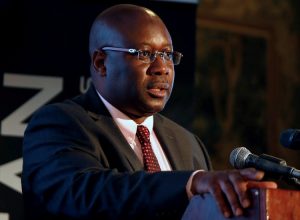During early bonus season, Biglaw firms are usually pretty eager to fall in line to prove their financial prowess. Which firm decided to join the Milbank bonus scale earlier this week, but kept things so casual that the memo was sent from its presiding partner’s cellphone?
It’s Debevoise, and it looks like the firm has adopted the Milbank scale for its U.S. associates. On Tuesday night, associates received this message from Michael Blair:
On behalf of all of the partners, thank you for your dedication to serving clients and building the firm.
Michael
Sent from my iPhone
Bro. Debevoise’s cool factor just went up a little in our book.
Here’s the bonus scale that the firm will be using for its associates:
Class of 2019 – $15,000 (pro-rated)
Class of 2018 – $15,000
Class of 2017 – $25,000
Class of 2016 – $50,000
Class of 2015 – $65,000
Class of 2014 – $80,000
Class of 2013 – $90,000
Class of 2012+ – $100,000
Read the full bonus memo on the next page. Bonuses at Debevoise will be “payable in the usual mammer at year end.”
Remember everyone, we depend on your tips to stay on top of important bonus updates, so when your firm matches, please text us (646-820-8477) or email us (subject line: “[Firm Name] Matches”). Please include the memo if available. You can take a photo of the memo and send it via text or email if you don’t want to forward the original PDF or Word file.
And if you’d like to sign up for ATL’s Bonus Alerts (which is the alert list we also use for salary announcements), please scroll down and enter your email address in the box below this post. If you previously signed up for the bonus alerts, you don’t need to do anything. You’ll receive an email notification within minutes of each bonus announcement that we publish. Thanks for all of your help!
 Staci Zaretsky is a senior editor at Above the Law, where she’s worked since 2011. She’d love to hear from you, so please feel free to email her with any tips, questions, comments, or critiques. You can follow her on Twitter or connect with her on LinkedIn.
Staci Zaretsky is a senior editor at Above the Law, where she’s worked since 2011. She’d love to hear from you, so please feel free to email her with any tips, questions, comments, or critiques. You can follow her on Twitter or connect with her on LinkedIn.










 Jordan Rothman is a partner of
Jordan Rothman is a partner of 








